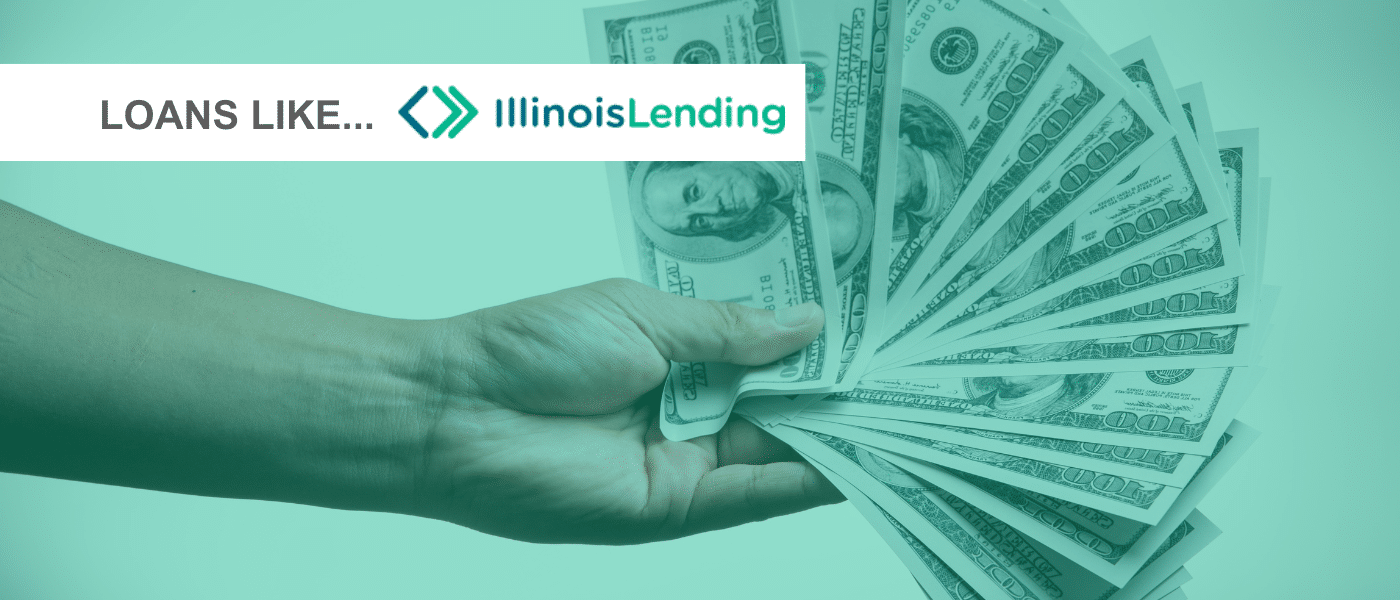Credit card companies do investigate when there is suspicion of fraud. Creditors investigate by gathering information to determine the type of fraud, how much money was lost, and how your credit card data was stolen. At the end of the investigation, the creditor must make a decision regarding the fraud claim.
Fraud is a serious and far too common crime that affects everyday consumers. Approximately 151 million Americans have been fraud victims at some point in their life.1 If you are the victim of credit card fraud, keep reading to learn more about the investigation process and how to protect yourself in the future.
What Is Credit Card Fraud?
The most basic definition of credit card fraud is someone using your credit card or your account details in order to make purchases with your credit line without your permission or knowledge. However, credit card fraud can also be broken down into two categories:
In-person Fraud
In-person credit card fraud, also known as card-present fraud, happens when someone steals your actual card, creates a counterfeit credit card with your account information on it, or utilizes your information for an unauthorized transaction in a store.
Remote Fraud
Remote fraud, also known as card-not-present fraud, refers to every other way someone might be able to fraudulently use your credit card account to make purchases such as online shopping, etc.
Warning Signs of Credit Card Fraud
These are some common warning signs of credit card fraud:
| Warning Sign | What It Might Mean |
| Unrecognized Charges | Small or large, any unfamiliar activity can be a red flag. Scammers sometimes test with small amounts. |
| Missing Statements | Not receiving your regular statement could indicate someone has changed your account’s mailing information. |
| Calls from Debt Collectors | If you’re getting calls about debts for accounts you didn’t open, it’s a big red flag. |
| Unexpected Declines | Your card being declined could indicate maxed out credit from unauthorized use. |
| Credit Inquiries | If you notice inquiries from unknown lenders on your credit report, it could mean someone’s using your ID. |
| New Cards in the Mail | Receiving credit cards you didn’t apply for can be a sign of identity theft. |
| Alerts from Your Card Issuer | Banks often monitor for fraud and may send alerts about suspicious activity — don’t ignore these. |
How Credit Card Issuers Handle a Credit Card Fraud Investigation
If you notice unauthorized credit card transactions, you should be able to easily report them to your credit card issuer. Many credit card companies have a special point of contact to investigate unauthorized transactions and if not, you can go through the normal customer support phone number.
Once you report the unauthorized transaction, the credit card issuer will work alongside you to determine whether a credit card fraud investigation is required. To move forward in a fraud investigation process after a cardholder disputes certain transactions, credit card issuers must first confirm that they are fraudulent charges.
The Fraud Investigation Process
After a fraudulent charge is noticed or a fraud claim is made, the credit card issuer will likely cancel your card and send you a replacement before starting the fraud investigation. Some companies might issue you a refund immediately but if they don’t, you are still not responsible for the disputed transactions throughout the investigation.
The bank fraud investigation process can take up to 90 days. During the investigation, the issuer might contact the merchant who charged your card and you for more details that they might need. Card issuers and merchants will also be on the lookout for “friendly fraud” which is a term for when a cardholder completes a purchase and then disputes it as fraud when it wasn’t.
According to the federal Fair Credit Billing Act (FCBA), all victims of credit card fraud have a limited liability of no more than $50 for fraudulent transactions. But credit card companies like American Express, Mastercard, Visa, and Discover limit your liability even further to $0 on all consumer credit cards.
Do Credit Card Companies Provide Fraud Protection Features?
When it comes down to it, it is better to prevent credit card fraud than to be forced to deal with it after the fact. As a consumer, it is wise to find credit card issuers who are up to date with all the latest preventative measures to protect you from credit card fraud.
When deciding which credit card to apply for, be on the lookout for these fraud protection features:
EMV Chips
Credit cards with EMV chips are now the standard for most issuers. EMV chips have been widely adopted by companies because they give cards an extra layer of protection compared to swiping the magnetic strip. However, EMV chips are still susceptible to card shimming which is when a special device gets attached to the card reader by scammers. When inserting a card with an EMV chip, most modern shimming devices can still copy the card’s information.
Contactless Cards
A contactless credit card can be even safer than swiping the magnetic strip or inserting the EMV chip. With a contactless card, you can tap the card against the reader or use a mobile device with a digital wallet to complete a transaction. Contactless payments are incredibly safe and many popular credit cards from large issuers now offer them regularly.
Virtual Card Numbers
Some card issuers might also allow you to create a virtual credit card number to utilize when you are shopping online so that you can keep your card’s actual details private.
What To Do if You Are a Victim of Credit Card Fraud?
If you see suspicious activity on your debit cards or credit cards, there are several actions you should take when you think you might be a victim of credit card or identity fraud.
Contact Your Credit Card Issuer
The first thing you will want to do when you notice suspicious activity on your account is to contact the credit card issuer. They can put a credit freeze on your card so that you are protected from any further fraudulent charges. After you report fraud to the issuer, you will be able to dispute the charges with their consumer services department.
Lock Your Credit Report
Contact the credit bureaus to lock or freeze all of your credit reports. Locking your credit reports will protect your FICO score from fraudulent changes that don’t reflect your creditworthiness. However, freezing your credit reports will also prevent new creditors from accessing your report, so it is important to thaw the freeze when you apply for a new account.
Put a Fraud Alert to Your Credit Report
If you determine that a fraud alert should be sufficient, placing one on your credit report can be done easily online. Experian offers a fraud center on their website which will allow you to create an alert that they will pass on to the two other major credit bureaus. With a fraud alert, new creditors will still be able to access your credit report but will just need to take extra steps to verify your identity before opening a new account in your name.
Report to the Federal Trade Commission
If you believe that identity theft has occurred in the process of your credit card fraud, it is crucial that you report all the information you have to the Federal Trade Commission (FTC). Doing this will allow them to investigate further to ensure you don’t experience any future negative consequences of the fraud. The FTC may be able to identify the culprit or prevent this particular scam from happening again to others.
Quick Tips for Responsible Credit Usage
Apart from knowing what to do when faced with credit card fraud, there are other ways to manage a credit card wisely to ensure your credit report stays healthy and that you avoid overwhelming credit card debt.
Here are some tips to follow for a positive relationship with credit usage:
Check Your Free Credit Reports Often
Checking your report often can help you catch errors early on and ensure that any inaccurate information on your credit is not due to fraudulent charges or identity theft. You can dispute issues on your credit report with the three credit reporting bureaus.
Aim For Low Credit Utilization
Keep your credit utilization low at all times. Your credit utilization ratio contrasts your available credit to your used credit. You want to aim to have a credit utilization rate of 30% or below to have a good credit score. But if you want to go the extra mile, pay off your credit card in full regularly.
Pay Off Your Outstanding Balances
If you can afford to, consider paying off your full credit card balances at the end of every month. This will allow you to maintain a low credit utilization rate and save a significant amount of money on interest charges. And using credit up to the point where you still have enough money to pay off your full balance at any given time ensures that you never build up too much credit card debt.
Keep Older Accounts Open
If you no longer wish to use an account anymore and are considering closing it, think twice. When you cancel a credit card account, you could reduce your available credit considerably and decrease the length of your credit history, both of which are central to your credit score calculation.
Consider leaving the account open for a while instead. If the issuer requires that you maintain a balance, simply turn on an automatic payment for a small bill with that credit card and schedule to pay off that balance directly after.
Make All Your Payments On Time
Stop making your credit card and personal loan payments late. Late payments have a significant negative impact on your payment history in your credit report which accounts for 35% of your credit score calculation. Set up an automatic withdrawal from your checking account so that you can forget about installment loans and credit cards while never being late again.
FAQs About Fraud Investigations
When you flag an issue and your credit card company starts an investigation into fraud, they usually put a hold on the disputed amount. You won’t be expected to pay for the unauthorized transactions while they snoop around and sort things out.
Reporting fraud shouldn’t have a direct impact on your credit score. The key is to act fast. Once you spot something fishy, let your credit card company know ASAP. They’ll dive into their fraud investigation process, and typically, those pesky unauthorized charges won’t end up on your credit report.
Identity theft is when someone snags your personal info to impersonate you, maybe even opening new credit card accounts in your name. Credit card fraud is more about unauthorized use of your existing account.
Keep a close eye on your account statements, and set up transaction alerts if you can – catching weird stuff early is key. Be careful with your card info online and offline. Avoid doing anything with your credit card account on public Wi-Fi networks.
Most companies have a 60-day window for you to report any suspicious activity with your account. The sooner, the better, though. This way, they can jumpstart the credit card fraud investigations and you can relax knowing it’s being handled.
Absolutely, better safe than sorry! If your card’s gone AWOL, report it straight away. Your lender will usually freeze your account to prevent any potential fraud. Remember, it’s not just about the current, but possible future unauthorized transactions too.
Your credit card issuer is your first call—they’ve got protocols in place to investigate fraud. But if things escalate, like you’re dealing with identity theft or huge amounts of money, filing a report with the police or even the Federal Trade Commission can be a smart move.
What CreditNinja Wants You To Know About Credit Card Fraud Investigations
Now that you know credit card issuers actually investigate fraud, you may have additional questions about revolving credit accounts. CreditNinja offers more than online loans! We also offer helpful information online to help you better understand finances. Check out our financial blog to learn how often you should use a credit card, how to avoid credit card scams, and much more!
References:






